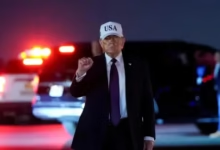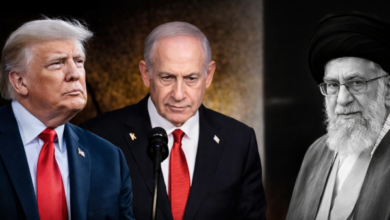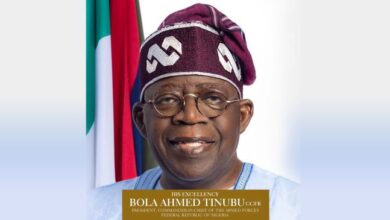
In a dramatic twist in one of Nigeria’s most politically charged trials, Nnamdi Kanu, leader of the proscribed Indigenous People of Biafra (IPOB), has filed a motion listing 23 witnesses, including top government officials and former security chiefs, as part of his defence in the ongoing terrorism case against him.
The development, which has already stirred widespread attention in legal and political circles, signals Kanu’s readiness to open his defence before Justice James Omotosho of the Federal High Court, Abuja, in compliance with the court’s directive.
A High-Stakes Legal Phase
The motion, filed under suit number FHC/ABJ/CR/383/2015, and signed personally by Kanu, comes as he seeks to defend himself against charges bordering on terrorism, unlawful broadcasts, and incitement.
In his latest filing, Kanu assured the court of his preparedness to testify and provide a sworn account “clarifying the political context” of his statements and actions.
He categorised his witnesses into two groups:
- Ordinary but material witnesses, who would testify on operational or factual matters.
- Vital and compellable witnesses, to be summoned under Section 232 of the Evidence Act, 2011, including several high-profile individuals.
Among those listed are:
- Abubakar Malami, former Attorney-General of the Federation;
- Nyesom Wike, Minister of the Federal Capital Territory;
- Gen. Theophilus Danjuma (rtd), former Minister of Defence;
- Gen. Tukur Buratai (rtd), former Chief of Army Staff;
- Dave Umahi, Minister of Works;
- Babajide Sanwo-Olu, Governor of Lagos State;
- Hope Uzodinma, Governor of Imo State;
- Okezie Ikpeazu, former Governor of Abia State;
- Ahmed Rufai Abubakar, former DG of the National Intelligence Agency (NIA); and
- Yusuf Bichi, former DG of the Department of State Services (DSS).
Nnamdi Kanu also indicated that he would call additional witnesses whose identities are being withheld for security reasons.
Kanu’s Legal Strategy and Broader Context
Kanu’s decision to call a wide range of government and security figures as witnesses is being interpreted by legal observers as a strategic pivot — one aimed at framing his case as not merely criminal, but political and constitutional.
By invoking senior state actors in his defence, the IPOB leader appears determined to establish the institutional context of the allegations, particularly regarding federal security operations in the South-East.
He has requested a 90-day window to conclude his defence, citing the volume of witnesses and complexity of evidence to be presented.
“I will testify on my own behalf, denying the allegations and providing the political context of my actions. Justice must not only be done but seen to have been done,” Kanu stated in the motion.
Judicial Developments and Parallel Proceedings
The filing comes amid multiple ongoing legal motions surrounding Kanu’s detention and trial.
Just days earlier, his legal team filed a preliminary objection challenging the court’s jurisdiction, even as a panel of court-appointed medical experts declared him fit to stand trial.
Meanwhile, tensions around the case escalated on the streets of Abuja when police arrested 13 persons, including Kanu’s special counsel Aloy Ejimakor and his younger brother, during a protest demanding his release.
The protest, reportedly organised by activist Omoyele Sowore, led to the filing of two First Information Reports (FIRs) against the protesters, charging them with offences such as criminal conspiracy, disobedience of lawful order, incitement, and public disturbance.
A magistrate subsequently ordered their remand at Kuje Correctional Centre pending formal arraignment.
Legal Analysts Weigh In: Implications for Nigeria’s Judiciary and Political Climate
Legal analysts see this phase as a potential litmus test for judicial transparency and political accountability in Nigeria.
The inclusion of serving and former government officials among Kanu’s proposed witnesses underscores the intersection of law, politics, and national security that has long defined the IPOB controversy.
“This is not just a criminal trial — it’s a constitutional test case,” said a Lagos-based constitutional lawyer who spoke to BRANDECONOMY.
“If the court allows a full, open defence involving those named, it will deepen Nigeria’s democratic jurisprudence on state accountability and political rights.”
Observers also note that the timing of the motion — coming amid President Bola Tinubu’s broader efforts to stabilise governance and national unity — places additional responsibility on the judiciary to manage the case with fairness, precision, and restraint.
BRANDECONOMY Analysis: Law, Politics, and the Weight of History
For many Nigerians, the Nnamdi Kanu trial has become a mirror reflecting longstanding grievances about identity, governance, and regional equity.
While the government frames it as a national security matter, supporters of IPOB insist it is a struggle for self-determination and justice.
Regardless of the verdict on the protracted Nnamdi Kanu trial, analysts argue that the handling of the trial will have lasting implications — not just for the rule of law, but for Nigeria’s international image as a democracy navigating unity through diversity.
As BRANDECONOMY has consistently observed, institutional fairness and public communication will be crucial in defusing tensions and ensuring confidence in the legal process.
“Nigeria’s democracy is strengthened when even its most divisive trials are conducted with transparency and procedural integrity,” a senior political analyst at BRANDECONOMY noted.











